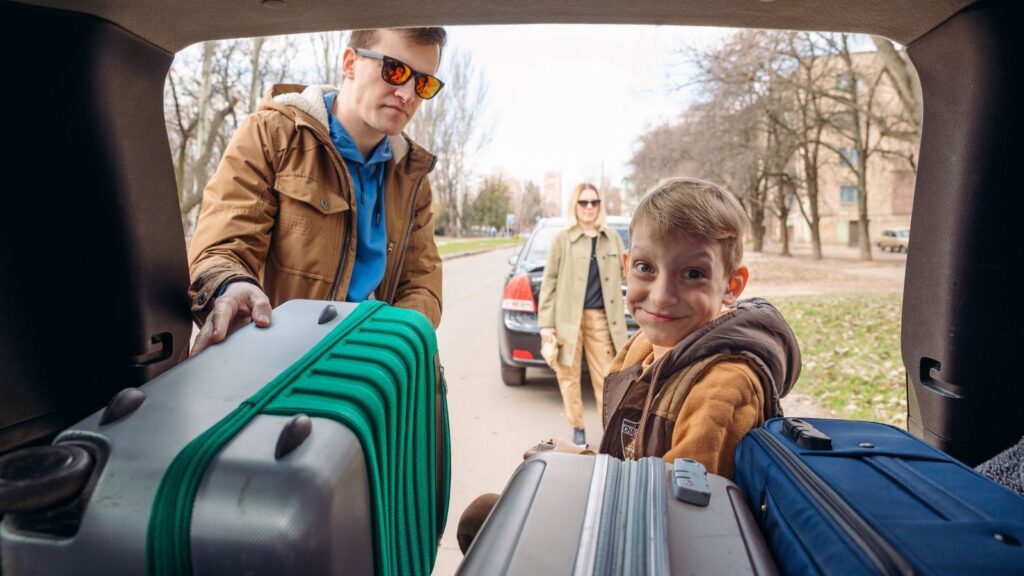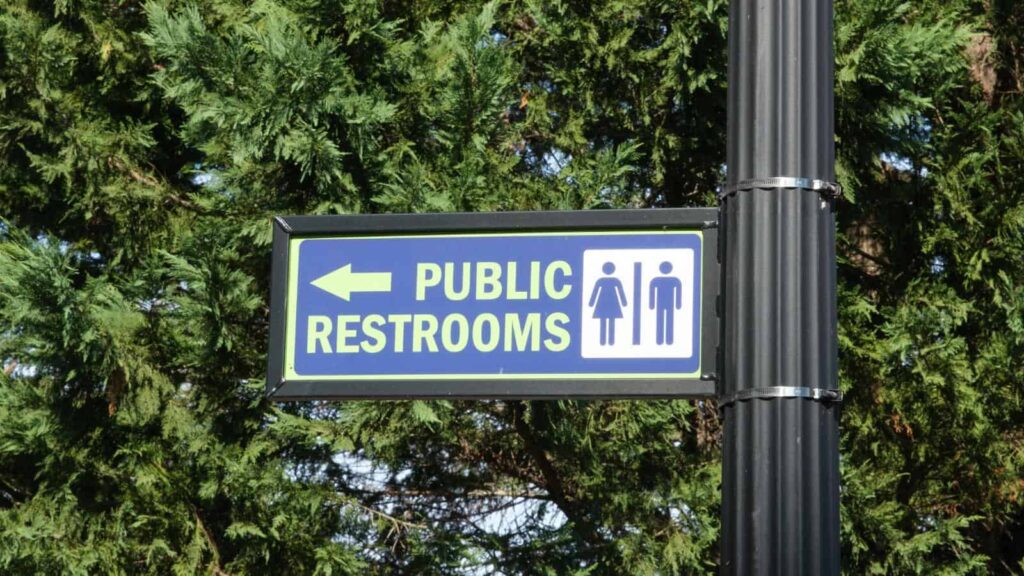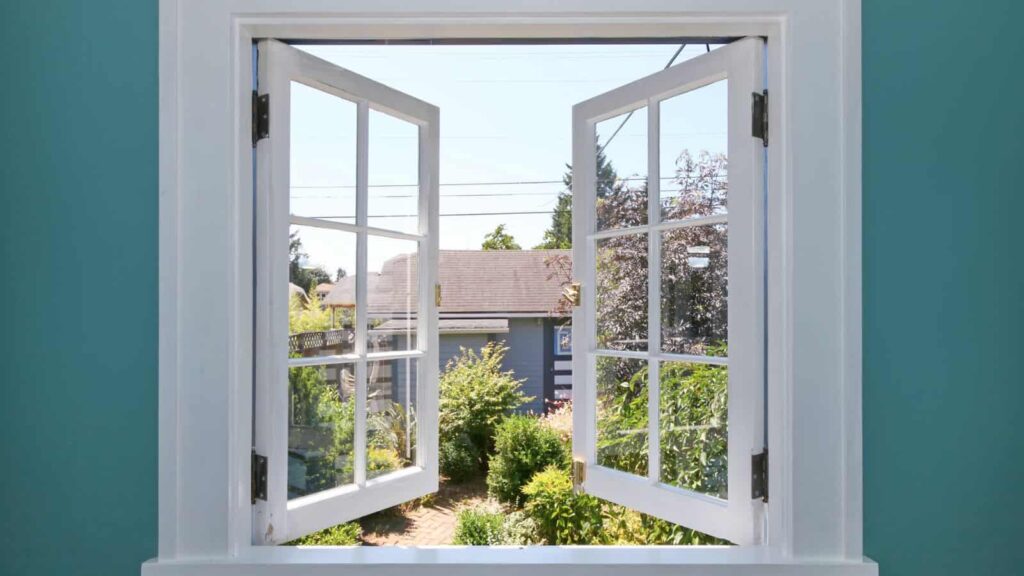Despite the great affinity between Americans and Europeans, each has a completely different lifestyle that leaves the other confused. From long breaks to late dinners and ancient structures, here are 17 things about Europeans that don’t seem normal from an American perspective.
Two-Hour Lunch Breaks

Americans get only about 30 minutes to have lunch and take a relaxing break during work. It’s no surprise that they find it weird that Europeans, such as the French, see two-hour lunch breaks as the norm. Even countries like Germany and Italy, which have stricter schedules, still give workers one hour to relax.
Longer-paid vacations

Some Americans are even more shocked when they learn that European workers enjoy more vacation days and make money while at it, too! While Americans are entitled to only 12 days of unpaid vacation, NPR shares how European workers are usually guaranteed four weeks of paid vacation.
Kissing Cheeks

Giving loved ones a peck on the cheek is a foreign concept to Americans, but Europeans use it as a form of greeting. Some European countries even see pecks on both cheeks as more appropriate. Americans consider handshakes to be enough and even feel hugs are a bit invasive of their personal space.
Walking Everywhere

Up to 30% of Europeans choose walking as their primary mode of transport, regardless of where they’re going. This understandably surprises many American tourists. Americans have a drive-not-walk mentality, where only 2.4% walk to work, and driving is preferred even when only heading down the street.
Charging for Public Restrooms

In the US, public restrooms are generally free to use. However, in many European countries today, you may have to pay between 0.5 cents and 1.5 euros just to relieve yourself. This is simply to fund the maintenance of the restrooms for clean and convenient public use.
Drinks With No Ice

While Americans serve virtually all their drinks with ice and even have refrigerators with built-in ice makers, Europeans don’t care for them. Some believe cold drinks are bad for the stomach, and Europeans just don’t want to dilute their drink, altering its taste by putting ice in it.
Fluency in Multiple Languages

Americans are also surprised at the wide gap between them and Europeans when it comes to speaking non-native languages. The Washington Post shares that only 20% of Americans speak multiple languages, compared to 56% of Europeans, who mostly love to learn English, French, and Spanish.
“Underage” Alcohol Consumption

When it comes to alcohol, two European norms baffle Americans. While the legal drinking age for Americans is 21 years old, Europeans have a lower threshold set at 18 or even 16 years old. Even with these lower ages, there’s a lax attitude towards underage drinking in Europe that Americans find absurd.
Ancient Structures

While the US has some pretty old buildings and dwellings dating back to the first century, Europeans live among the most ancient structures you’ll find worldwide. There are European structures like Stonehenge from over 3000 BC that are still standing strong and mostly intact.
Closing Shops Early

Europeans generally don’t shop at night, so most shops close at the normal business end of the day—between 5 PM and 6 PM. You’re considered lucky if you still find a shop open by 8 PM, which goes against the idea of 24/7 stores that many Americans are used to.
Eating Dinner Late

Americans consider anytime between 6 PM and 8 PM ideal for dinner, but in countries like Spain, even 10 PM isn’t close to being late. This lifestyle, which Americans consider unhealthy, is almost a necessity in many hot European countries due to their midday siesta breaks.
Open Borders

We all know the political controversies Americans deal with daily regarding “Trump’s Wall” and the closure of the borders. So, it’s no surprise how much of a culture shock it is when they see that you don’t need a Visa to travel across the 27 Schengen countries between Portugal and Finland.
Leaving Babies Alone Outside

Talking to Business Insider, parents in Nordic and Scandinavian countries say they leave babies out in the cold to give them “higher quality rest.” This is a tradition that Americans find baffling, as they deem it to be neglectful and don’t trust strangers enough.
Having No Need For Air Conditioning

There may be uncomfortable heat waves sometimes, but Europe is a mildly temperate continent. Summers are also short, which is why many don’t see a need for ACs. In fact, the idea of ACs is so foreign that only 19% of European homes have them, compared to 90% in the US.
Screenless Windows

Americans worry about bugs all the time and consider it bizarre that Europeans do not have screens over their windows. In fact, Europeans are often comfortable leaving their windows wide open! They do this because they prioritize fresh air in the summer and don’t mind swatting bugs away.
Smoking in Public

Bans on public smoking swept through the US in the late 1990s and early 2000s, and Americans have gotten used to them ever since. Meanwhile, except in certain establishments, 13 European countries still permit smoking in restaurants, bars, coffee shops, and terraces, much to the dismay of even the European Parliament.
Attitude Towards Traffic

Finally, research shows that 88% of Europeans drive above the speed limit, 66% speed through traffic lights, and many don’t use turn signals or respect stop signs. This may also happen in the US, but Americans are baffled by Europe’s lax attitude towards these traffic offenses. That’s why they’re so widespread in the first place.
Up Next: 17 Things Most People Forget After Someone Dies

When a person dies, it’s easy for their partner or family members to overlook things while they process shock and grief. Despite the pain of losing a loved family member, it’s important to remember to organize these 17 things to prevent problems later on.
17 Things Most People Forget After Someone Dies
17 Phrases Confident People Use to Stand Up For Themselves

Confidence is a healthy and attractive trait that helps us stand firm in our values and set healthy boundaries. We can always become more confident, and learning the right ways to stand up for yourself is a great way to start. Here are 17 phrases you can use to do so.
17 Phrases Confident People Use to Stand Up For Themselves
20 Signs Someone Is Only Pretending to Care

Whether it’s to avoid hurting your feelings or if it’s part of a more elaborate plan to deceive you for benefits, people pretend for many reasons. The main theme with them, though, is that their actions never match the sugar-coated words that come out of their mouths. So that you don’t fall for someone like this, we’ve compiled 20 signs for you to look out for.

